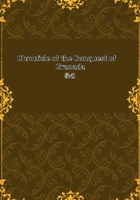
第2章
The foregoing introduction, prefixed to the former editions of this work, has been somewhat of a detriment to it. Fray Antonio Agapida was found to be an imaginary personage, and this threw a doubt over the credibility of his Chronicle, which was increased by a vein of irony indulged here and there, and by the occasional heightening of some of the incidents and the romantic coloring of some of the scenes. A word or two explanatory may therefore be of service.*
*Many of the observations in this note have already appeared in an explanatory article which at Mr. Murray's request, the author furnished to the London Quarterly Review.
The idea of the work was suggested while I was occupied at Madrid in writing the Life of Columbus. In searching for traces of his early life I was led among the scenes of the war of Granada, he having followed the Spanish sovereigns in some of their campaigns, and been present at the surrender of the Moorish capital. I actually wove some of these scenes into the biography, but found they occupied an undue space, and stood out in romantic relief not in unison with the general course of the narrative. My mind, however, had become so excited by the stirring events and romantic achievements of this war that I could not return with composure to the sober biography I had in hand. The idea then occurred, as a means of allaying the excitement, to throw off a rough draught of the history of this war, to be revised and completed at future leisure. It appeared to me that its true course and character had never been fully illustrated.
The world had received a strangely perverted idea of it through Florian's romance of "Gonsalvo of Cordova," or through the legend, equally fabulous, entitled "The Civil Wars of Granada," by Ginez Perez de la Hita, the pretended work of an Arabian contemporary, but in reality a Spanish fabrication. It had been woven over with love-tales and scenes of sentimental gallantry totally opposite to its real character; for it was, in truth, one of the sternest of those iron conflicts sanctified by the title of "holy wars." In fact, the genuine nature of the war placed it far above the need of any amatory embellishments. It possessed sufficient interest in the striking contrast presented by the combatants of Oriental and European creeds, costumes, and manners, and in the hardy and harebrained enterprises, the romantic adventures, the picturesque forays through mountain regions, the daring assaults and surprisals of cliff-built castles and cragged fortresses, which succeeded each other with a variety and brilliancy beyond the scope of mere invention.
The time of the contest also contributed to heighten the interest.
It was not long after the invention of gunpowder, when firearms and artillery mingled the flash and smoke and thunder of modern warfare with the steely splendor of ancient chivalry, and gave an awful magnificence and terrible sublimity to battle, and when the old Moorish towers and castles, that for ages had frowned defiance to the battering-rams and catapults of classic tactics, were toppled down by the lombards of the Spanish engineers. It was one of the cases in which history rises superior to fiction.
The more I thought about the subject, the more I was tempted to undertake it, and the facilities at hand at length determined me.